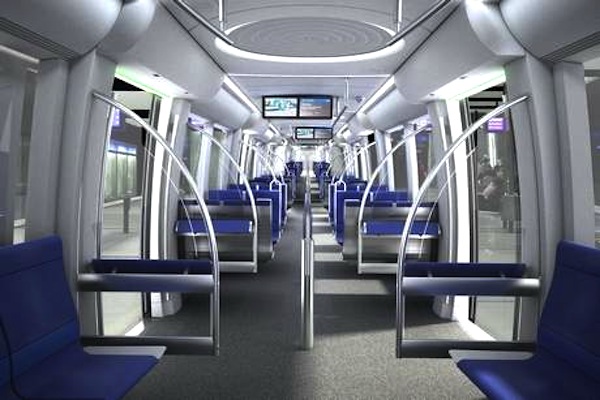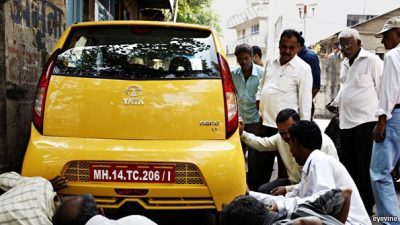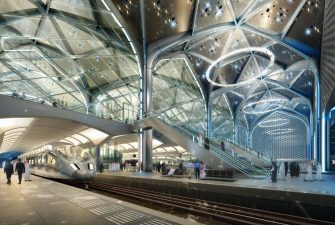 Dubai’s metro started running in 2009 (don’t fall asleep though) but Abu Dhabi, the wealthier Emirate, is only now reducing its dependence on cars with a swanky new rail and tram system. And Siemens hopes to hop on board.
Dubai’s metro started running in 2009 (don’t fall asleep though) but Abu Dhabi, the wealthier Emirate, is only now reducing its dependence on cars with a swanky new rail and tram system. And Siemens hopes to hop on board.
The National reports that Abu Dhabi’s Executive Council approved a plan to develop a multibillion dollar, state-of-the art public transportation system.
Mostly they are motivated by the money lost when residents stay stuck in traffic for hours every day, but there are a host of other benefits associated with public transportation including greater happiness and productivity, and less pollution.
Still, the $1.61 billion dollar savings estimated by Abu Dhabi’s Department of Transportation by 2030 is nothing to scoff at, so the National Transport Authority will oversee five different rail projects worth $22.41 billion over the next several years.
And Siemens, the German multinational engineering and electronics conglomerate company headquartered in Munich and Berlin, has expressed an interest in working on the first phase.
“Abu Dhabi has pumped a lot of efforts in the last years to build highways, tunnels,” Joerg Scheifler, the chief executive for infrastructure and cities at Siemens in the Middle East, told The National in a recent interview.
“When your population reaches 1 million, you should start building things like metros and trams. They have been talking about metro and trams for many years, but now they are serious.”
For the first phase, 18 kilometers of rail will connect Zayed Sports City and Mina Port. Of that, five kilometers will be installed underground.
Siemens has joined other companies to undergo a pre-qualification process. Once that is complete, which is expected to occur in the fourth quarter, the firm will be able to participate in a tender process that is expected to take place next year.
This phase of the project will set Abu Dhabi back $7 billion and should be up and running by 2020.
Several Gulf states are preparing to reduce their dependence on cars. In the lead up to the 2022 World Cup in Qatar, for example, that emirate is planning to build 158 miles worth of metro and rail lines both within Doha and beyond.
The emir recently chose the “vaulted spaces” design, which incorporates many traditional Islamic principles such as the arch, for the metro stations.
Unfortunately, many of these infrastructural developments are built on the backs of foreign workers who often endure conditions akin to modern day slavery. Hopefully this will not be the case in Abu Dhabi, which we have come to consider a leader in more responsible development.



